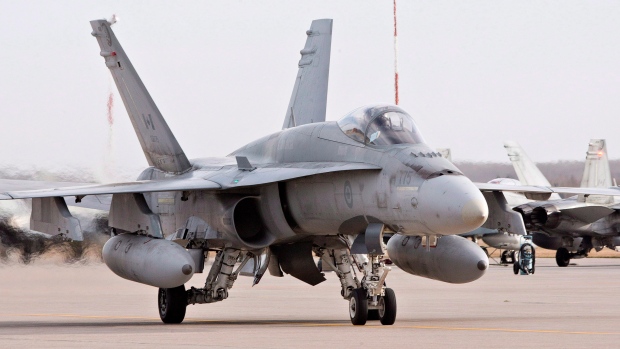Aug 30, 2019
Airbus pulls out of Canadian fighter jet competition following complaints
, The Canadian Press

OTTAWA -- Canada's multibillion-dollar effort to buy new fighter jets has taken another surprise turn with European aerospace giant Airbus announcing it has withdrawn from the high-stakes competition over concerns about the process.
Airbus Defence and Space, in partnership with the British government, was one of four companies expected to bid on the $19-billion contract to build 88 new fighter jets. They're to replace the Royal Canadian Air Force's aging CF-18s.
But in a statement Friday, Airbus said it had told the Canadian government of its decision to withdraw its Eurofighter Typhoon for two reasons, both of which it had raised before the competition was formally launched in July.
The first relates to a requirement that bidders show how they plan to ensure their planes can integrate with the top-secret Canada-U.S. intelligence network known as "Two Eyes," which is used for defending North America.
"A detailed review has led the parties to conclude that (the) security requirements continue to place too significant of a cost on platforms whose manufacture and repair chains sit outside the United States-Canada Two-Eyes community," Airbus said.
The second factor was the government's decision to change a long-standing policy that requires bidders on military contracts to legally commit to invest as much money in Canadian products and operations as they get out of the fighter contract.
With the new process, bidders can instead establish "industrial targets," lay out a plan for achieving those targets and sign a non-binding agreement promising to make all efforts to achieve them. Such bids do suffer penalties when the bids are scored but are no longer rejected outright.
The change followed U.S. complaints the previous policy violated an agreement Canada signed in 2006 to become one of nine partner countries in developing the F-35. The agreement says companies in partner countries will compete for work.
In its statement, Airbus said the new approach "does not sufficiently value the binding commitments the Typhoon Canada package was willing to make, and which were one of its major points of focus."
Airbus is the second company to pull its fighter jet from the competition after Dassault withdrew its Rafale last November, which leaves Lockheed Martin's F-35, Boeing's Super Hornet and Sweden's Saab Gripen.
Companies are expected to submit their bids next winter, with a formal contract signed in 2022. The first plane won't arrive until at least 2025.




